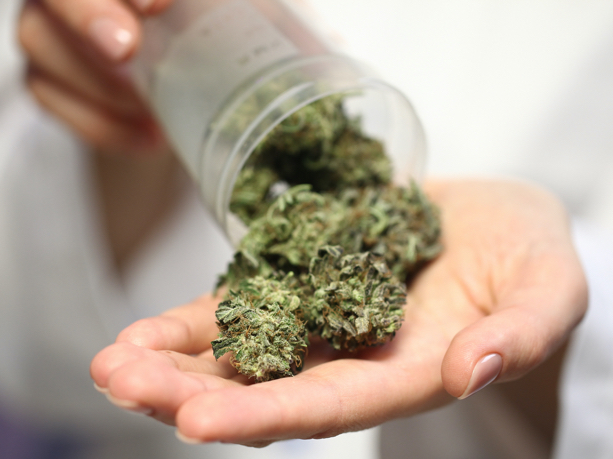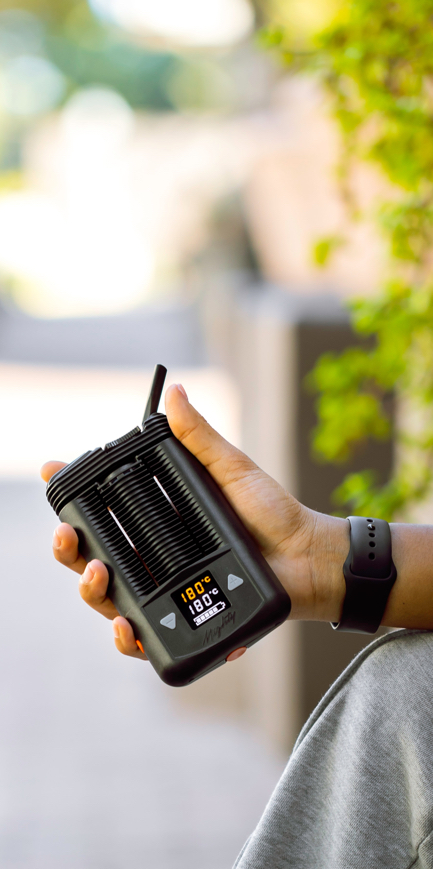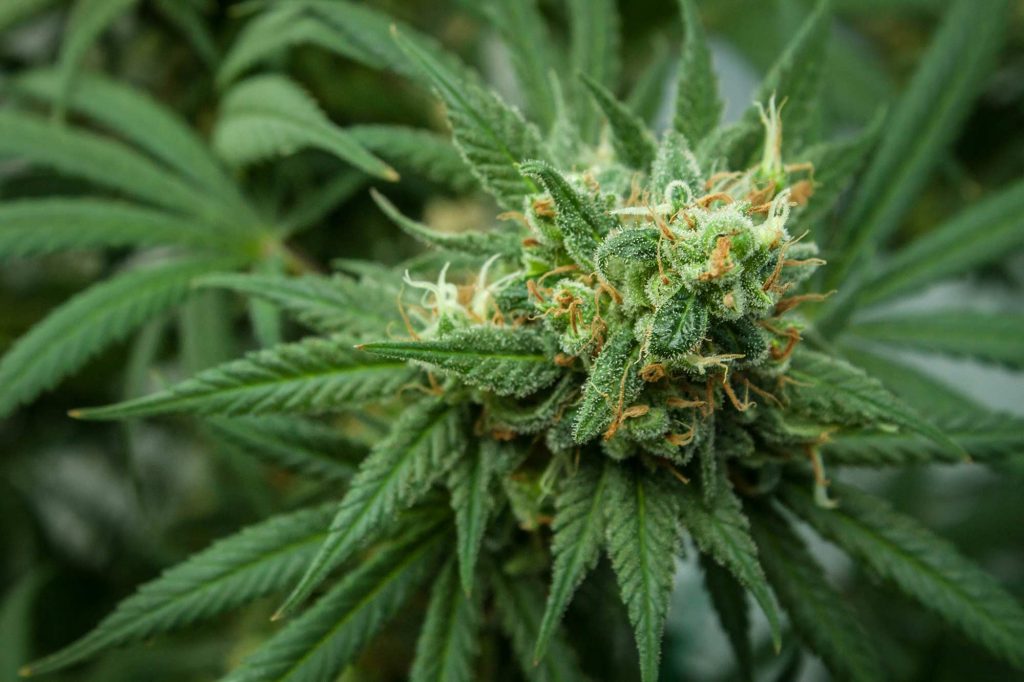Blog
Fibromyalgia and Cannabis


Fibromyalgia is a long-term condition that can cause chronic pain throughout the body. It affects 1 in 20 people in the UK but little is known about what causes it.
Medical professionals speculate that it could be related to a change in the quantities of certain chemicals in the brain and the way the central nervous system regulates pain messages.
There are no known cures for fibromyalgia but many studies have been conducted on the effectiveness of cannabis for treating chronic pain, and there is some evidence to say that using cannabis based medicine for fibromyalgia may help to alleviate symptoms like muscle pain and tenderness.
This article will summarise current research and explain how some patients are treating fibromyalgia with cannabis.
What we’ll cover in this article

Potential Benefits
Cannabis based medicine could be used to treat the following symptoms often experienced by fibromyalgia patients:
- Reduce and manage pain
- Reduce and manage stiffness
- Reduce migraines related to fibromyalgia
- Treat insomnia or sleep issues related to fibromyalgia
- Enhance mood and promote relaxation
- Reduce and manage muscle stiffness
Research
Understanding the key differences between THC and CBD
Cannabis gains many of its medicinal properties from the one hundred and fifty plus compounds, known as cannabinoids, that naturally occur in the plant. The two most famous cannabinoids are THC and CBD. Both cannabinoids have anti-inflammatory and pain relieving properties but THC is also intoxicating whilst CBD actually counteracts THC’s inebriating effect.
Different strains of cannabis will have varying concentrations of each of these cannabinoids making them more or less suitable for each symptom related to fibromyalgia.
Understanding the perfect strain and cannabinoid ratio to treat fibromyalgia is still being understood and may well depend on each patient’s personal biochemistry and endocannabinoid system.
Most doctors will take a test and learn approach to using cannabis for fibromyalgia and may well prescribe different strains of cannabis to be taken during the daytime and before bedtime.
Medical cannabis for pain related to fibromyalgia
Extensive research has been conducted on the potential effects of cannabinoids as an analgesic agent, particularly as an alternative to the traditional use of opioids for the treatment of severe or chronic pain.
These studies have shown that CBD may have potential in the long-term management of severe or chronic pain, especially when used in a multi-pronged approach alongside traditional pain relief treatments as they may hold the ability to antagonise a range of side effects associated with analgesics.
Studies have also been conducted on cannabidiol potentially treating the symptoms of “difficult to treat” pain often associated with non-neuropathic conditions like fibromyalgia, showing that they may be effective, and that the majority of those who were prescribed CBD oil products for an existing chronic pain condition were issued refills.
Researchers are still trying to find the ideal ratios of CBD to THC to treat pain caused by fibromyalgia. A 2018 study involving 28 patients trialled 4 different strains of cannabis with varying CBD:THC ratios without any conclusive findings.
Many of those living with fibromyalgia also report that they suffer from intense headaches. A correlation also exists between people with fibromyalgia and those who suffer from migraines.
Studies have shown that conditions like fibromyalgia and migraines may suggest underlying endocannabinoid deficiencies, which means that there is potential for the treatment of fibromyalgia headaches using cannabinoid products, and that they may be suitable for the treatment of migraines.
Medical cannabis for insomnia related to fibromyalgia
People with fibromyalgia often report having a very difficult time sleeping, which turns into a pattern of regular sleep disturbance for many. The difficulty sleeping is likely due to the severity of the pain associated with fibromyalgia, which in turn leads to sleep deprivation that can make pain even worse.
Research involving CBD oil and the sleep cycle have shown very promising results, with studies indicating that the use of cannabidiol may increase total sleep time, and could hold therapeutic potential for the treatment of insomnia and other sleep disorders.
Clinical studies using synthesized THC rather than amitriptyline with 31 fibromyalgia patients as a sleep aid with promising results.

How people use CBPMs
Cannabis based medicine with THC
In the UK, cannabis based medicine with THC can only be prescribed by a specialist doctor.
The NHS would not currently prescribe this type of medicine for fibromyalgia. Current guidelines restrict NHS doctors from considering cannabis based medicine as treatment for anything other than some rare types of epilepsy, nausea and vomiting caused by chemotherapy and spasticity related to MS.
Specialist doctors working with private medicinal cannabis clinics would be able to prescribe cannabis based medicine if you had already tried at least two first line medicines unsuccessfully to treat fibromyalgia related symptoms.
First line treatments for fibromyalgia could include cognitive behavioural therapy, antiepileptic medications (e.g. pregabalin, gabapentin) or antidepressants (e.g. amitriptyline, cyclobenzaprine, duloxetine).
To find out how to get a private medicinal cannabis prescription read this article: How to get medical cannabis in the UK for your condition?
Cannabis based medicine with CBD
CBD isolates (with no THC) or some broad spectrum CBD products (with negligible amounts of THC) can be bought online or over the counter in the UK.
Even though you don’t need a doctor’s prescription to buy these products, it is advised you talk to your specialist about how CBD could interact with your other medication and what quantities of CBD could work best for you.
A doctor working with a medicinal cannabis clinic would probably have more experience providing advice around dosing for fibromyalgia given that the NHS wouldn’t currently consider using cannabis-based medicine as a treatment option.
Risks
Sourcing high quality products
You should always look for a reputable, independently lab tested CBD brand. Many CBD oils have far lower CBD volumes than advertised on the bottle and may not have been made to medicinal standards.
Likewise, THC based medicine available from clinics is grown to a much higher safety and quality standard than most cannabis sourced from the illegal market. Using a safe product where the quantities of each cannabinoid is tested is key to successfully treating a medical condition.
Interactions with other drugs
Cannabis can interact negatively with some prescription drugs. It’s important to discuss possible dangerous interaction with your doctor before starting cannabis based treatment.
Side Effects
Cannabis can cause some unpleasant short term effects including:
- Impact short term memory
- Impact ability to concentrate
- Impact mood
- Cause confusion
Disclaimer: This article is intended for informational purposes only and does not constitute medical advice. Always consult a doctor or other qualified physician before seeking treatment for a medical condition.
Contact Us
Get in touch
We love hearing from people who believe in the power of cannabis. If you are a patient, a potential supplier or an investor please say hello!






